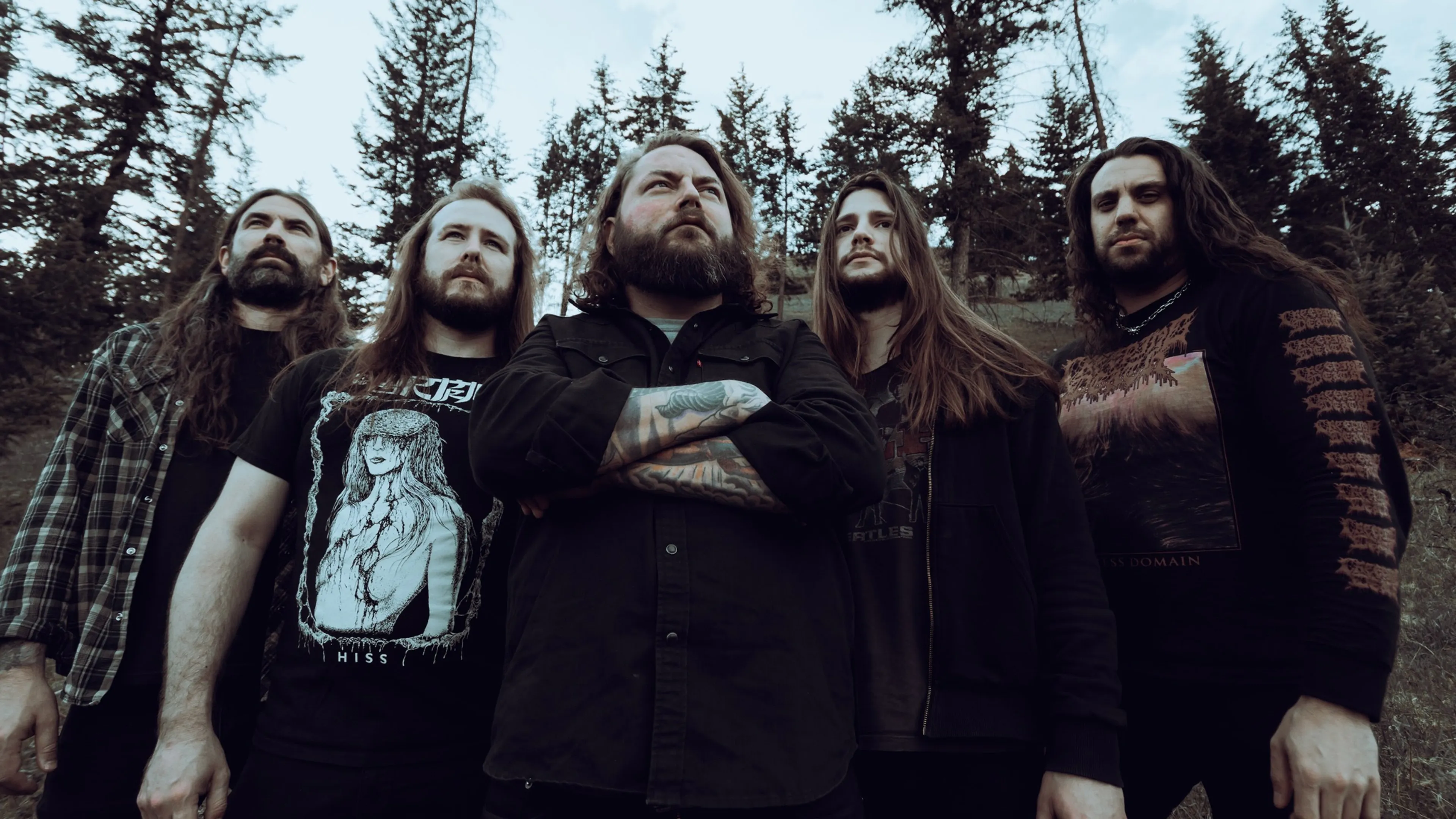Far more focus is on Brian’s vocal performance, of course. And as much as there is no ‘replacing’ Trevor, he’s a revelation, maintaining the brutality while bringing his own punky ragged edge.
“On this journey, I’ve spent a lot of time watching the best frontman there could ever be for The Black Dahlia Murder,” he gestures. “I got to listen to his conversations with other amazing vocalists over the years about delivery, and presence. Of course, you can’t just catch up with people who’ve been doing it 10 or 20 years instantly. And I’m a 42-year-old man. I won’t be doing cartwheels or backflips across the stage. Maybe Bruce Dickinson can still do that shit, but I don’t know what he’s on. It’s a work in progress. It’ll always be a work in progress. And I’m confident that Trevor would’ve said his vocals were always a work in progress, too. But I’m not scared of that. Whether writing lyrics or finding how my vocals can develop and grow, it’s exciting.”
Time and again, the decision for bands to continue after the loss of a keystone member invites some level of fan backlash. And despite the honourable intentions and high quality of new work, there have already been vocal naysayers. For Brian, though, it’s not something to pay attention to.
“You can't really navigate fan expectation,” he shrugs. “We're all chaotic and unique. We respond to things accordingly. People may not think that we could make an album that sounds like TBDM without Trevor. But we didn’t have time to think about those outside pressures while we were working on this. We believe in ourselves in a band. And we’re itching for them to hear what we’ve done. Plus, if you’re not a fan of this version of TBDM, there are nine albums that you can go back to that we hope you still love. I hope what we’re doing now doesn't take away from that. And with the time we’re living in, it probably won’t be long before there’s some sort of AI vocal generator to put ‘Trevor’s’ vocals on the album anyway. That’s not something I’d be sad to hear!”
